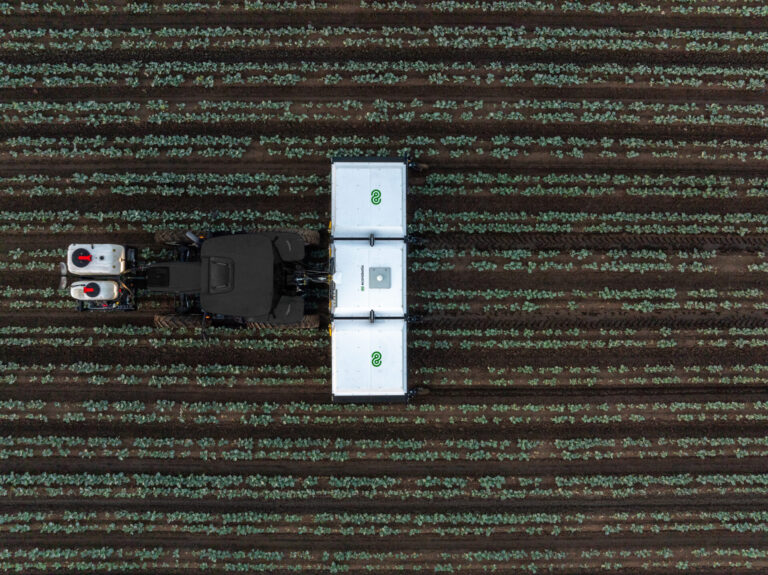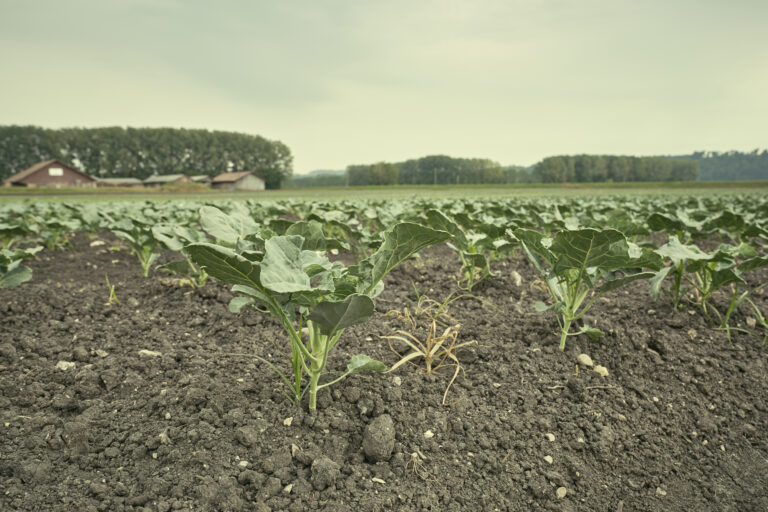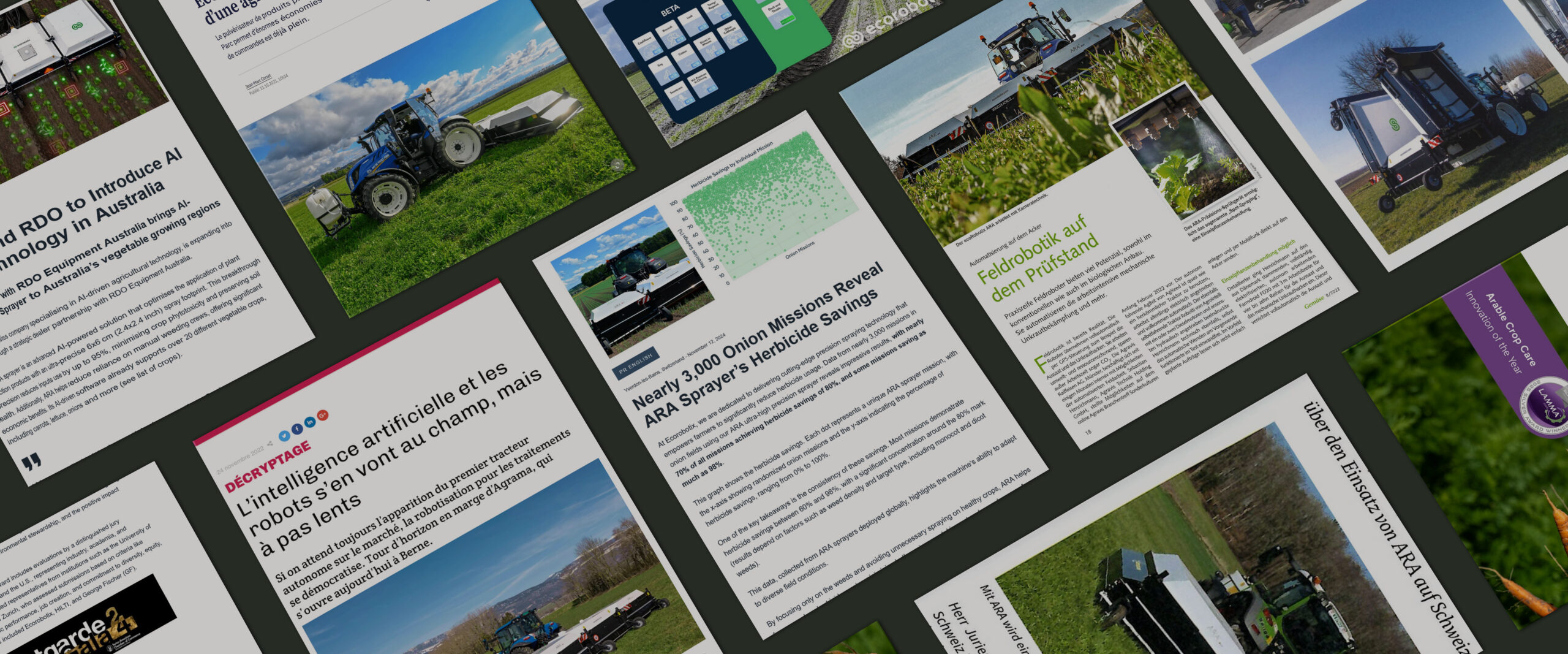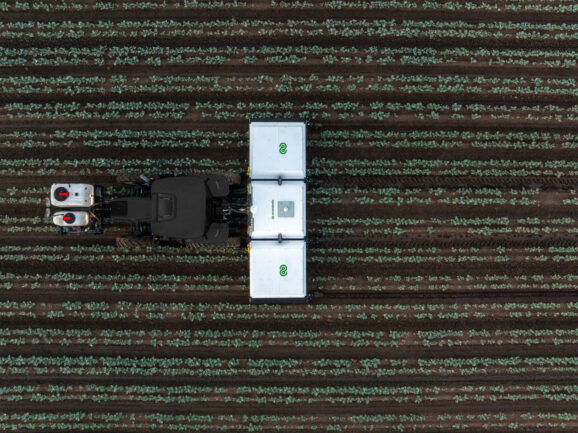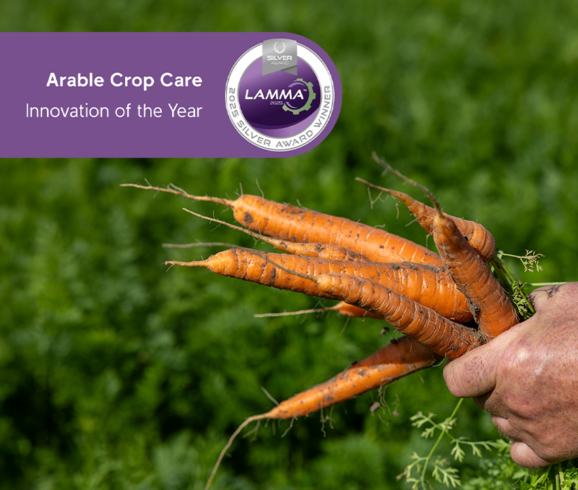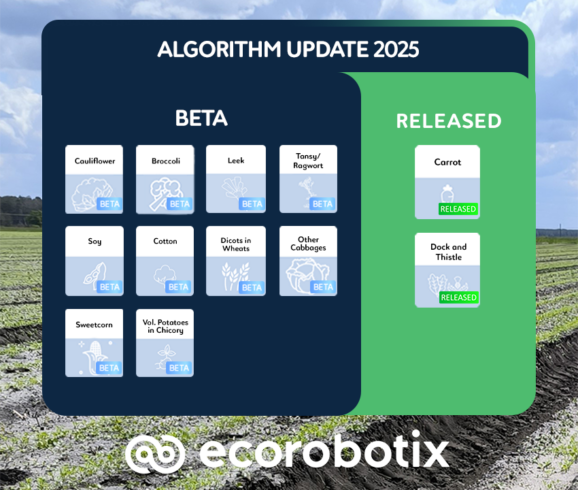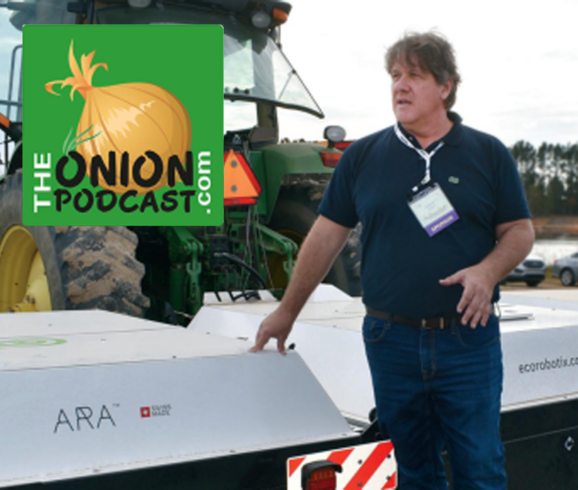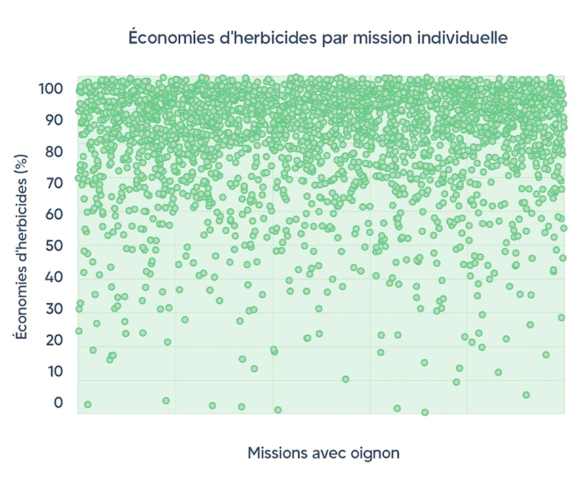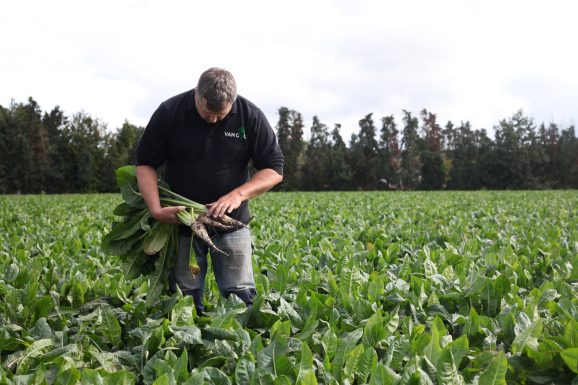Yverdon-les-Bains, Switzerland, the 15.09.2025
With the launch of its 2026 algorithms, available starting March next year, Ecorobotix is taking precision vegetable farming to the next level. Thanks to its Plant-by-Plant™ artificial intelligence, it is now possible to apply non-selective herbicides in a selective way, even in sensitive crops such as broccoli and cauliflower.
This breakthrough is transforming weed control: less manual labor, improved farm profitability, and a sustainable solution to the economic, environmental, and social challenges faced by growers.
Non-selective herbicides: a new milestone in vegetable farming
With the 2026 algorithms, Ecorobotix makes possible what once seemed unimaginable: applying non-selective herbicides selectively in sensitive crops such as broccoli. This technological breakthrough opens a new path for vegetable farming, reducing manual labor and providing alternatives as key molecules are being phased out.
For the first time, we are demonstrating that it is possible to use a non-selective herbicide in a sensitive crop such as broccoli with precision, targeting only weeds while protecting the crop. This is a concrete alternative to selective herbicides, opening up new possibilities for vegetable farming.
Dominique Mégret, CEO of Ecorobotix
New algorithms available starting March 2026
Available for pre-order today and launching in March 2026, these new algorithms mark a key milestone for vegetable farming. They provide growers with concrete solutions to reduce manual labor, improve crop profitability, and enhance harvest quality.
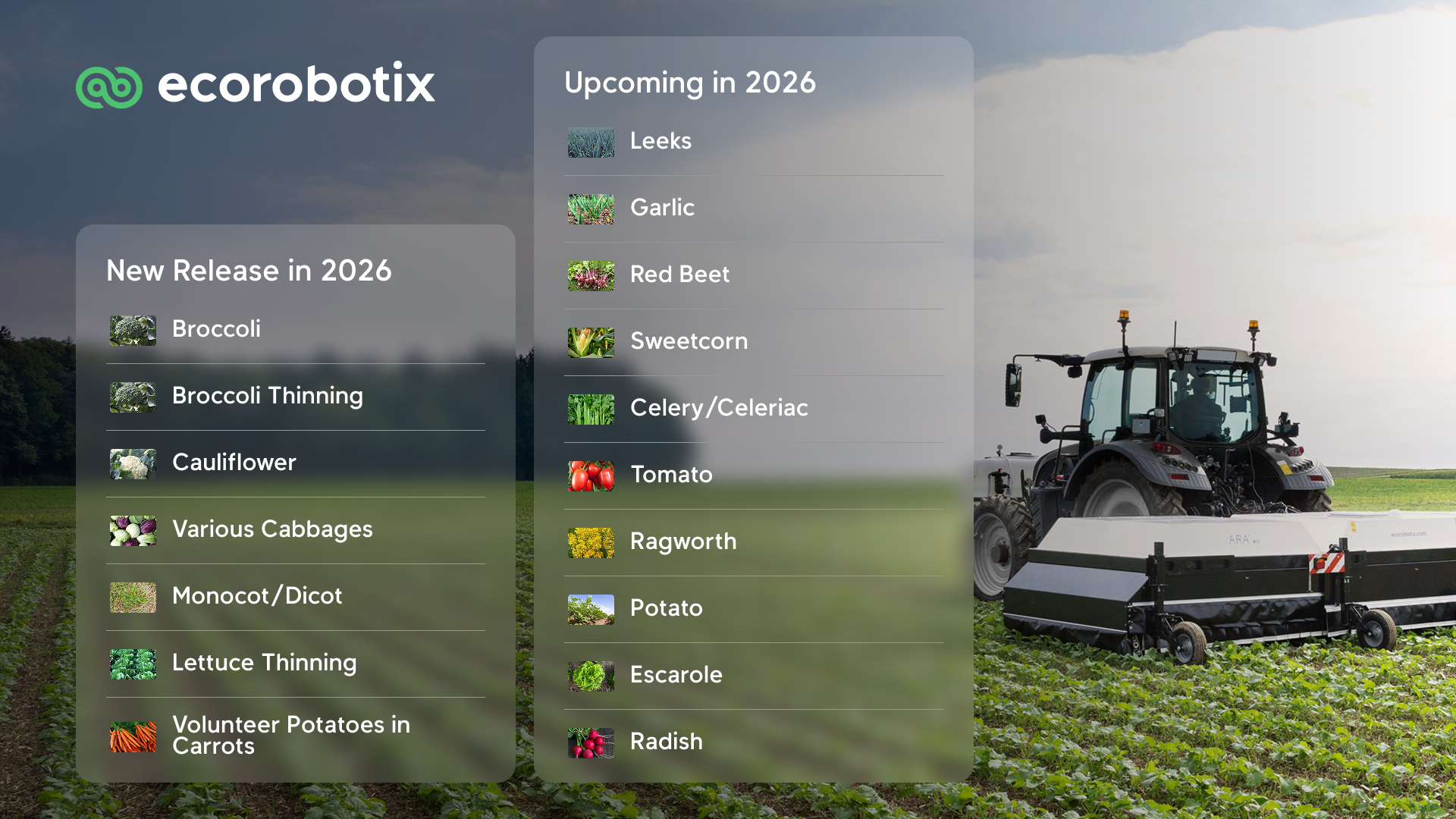
Among these innovations, the targeted use of non-selective herbicides in broccoli, cauliflower, and other cabbage varieties opens up new possibilities for sensitive crops. Precision thinning in lettuce and broccoli,already widely adopted in North America, now arrives in Europe, enabling growers to achieve more uniform crops while significantly reducing the need for manual labor.
New solutions to tackle the challenges of weed control
Volunteer potatoes are a major problem in vegetable farming: impossible to eradicate with traditional chemical methods, they still require manual removal, a long and costly task. With the “Volunteer Potato” algorithm, now available for carrot crops after successful results in onions and chicory, growers finally have a technological alternative that replaces manual labor with targeted, precise treatment.
At the same time, Ecorobotix’s Plant-by-Plant™ artificial intelligence continues to refine its detection. It no longer only distinguishes crops from weeds, but now differentiates between monocot and dicot across many crops, including carrot, lettuce, broccoli, cauliflower, chicory, and sugar beet.
These innovations open new perspectives for vegetable farming: a massive reduction in manual labor, direct improvements in profitability, and effective alternatives to face increasing restrictions on plant protection products.
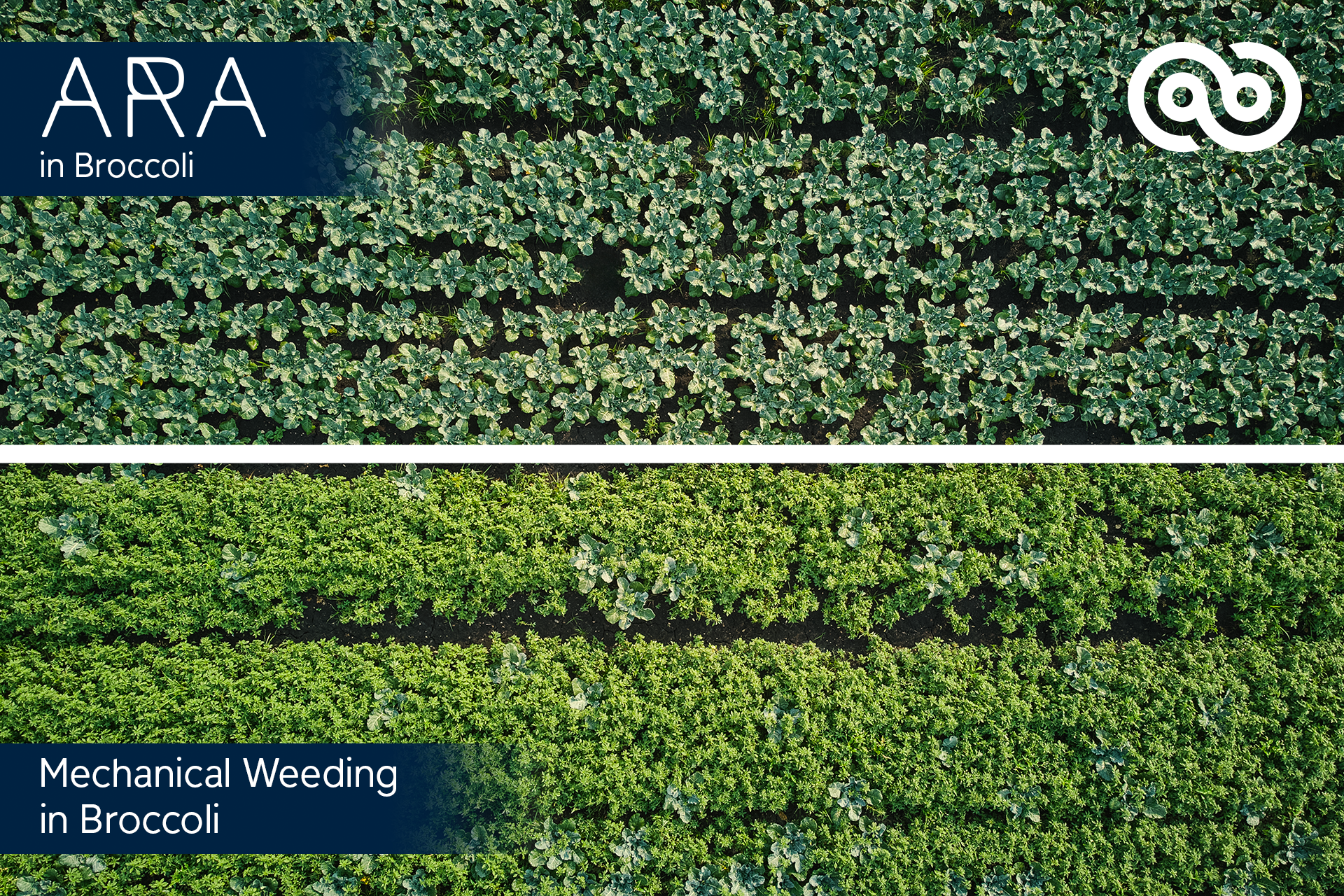
Upcoming algorithms for 2026
Ecorobotix is making several upcoming algorithms available free of charge during their testing phase. These include leek, garlic, celery, potato, as well as the detection of ragwort in pastures.
This approach gives growers the opportunity to explore the next advances of Plant-by-Plant™ artificial intelligence today, while expanding their treatment possibilities.

